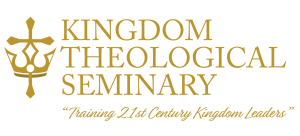The Bridge Program


The Bridge Program is a dual degree program, where you can receive a Bachelor of Kingdom Theology (BKT) and a Master of Kingdom Theology (MKT) degree simultaneously. The Bridge Program combines these two degrees and reduces the overall courses needed for completion of the undergraduate degree.
- The bachelor’s is designed to provide the learner a basic theological education that focuses upon undergraduate level of studies that encompasses a sound holistic theological education, with a special emphasis in Kingdom Theology.
- The master’s provides a deeper and more investigative approach to the Kingdom of God on a graduate-level which includes research and writing.
the dual degree - Your key to kingdom theology!
The Bridge Program is designed to prepare you for a Kingdom scholarship that allows you to teach and preach with a thorough knowledge of the original message of Jesus, the Kingdom of God. You will earn both your bachelors degree and your master’s degree in Kingdom theology which provides the most concentrated program of Kingdom studies in existence. This program will assist you in teaching, writing, and declaring the message of Jesus in our present context.
Courses
The Bridge Program contains the equivalent of 180 credit hours, which is comprised of 90 credit hours from the undergraduate program (Kingdom Bible University) and 90 credit hours from the Kingdom Theological Seminary.
The Kingdom Bible University Bachelor of Kingdom Theology contains the equivalent of 120 credit hours and is traditionally completed in 4 years. Through the Bridge Program, you will be exempt from 30 of those credit hours, which will save you tremendously in tuition and in the time it takes to complete your degree. Instead of spending 4 years just to complete your bachelor’s, you can spend 4-5 years and obtain both a bachelor’s and master’s in Kingdom Theology.
Kingdom Bible University Undergraduate Courses
This course is structured to facilitate a broad overview of the main theological themes of the Bible as it pertains to understanding God and the spiritual world. Topics covered will include: understanding doctrine, spiritual warfare, heaven and hell, the doctrine of angels, and the doctrine of last things. This course also seeks to systematically examine the deity, continual work, and gifts of the Holy Spirit.
This course is structured to facilitate a broad overview of the main theological themes of the Bible, specifically the church and the Kingdom of God. This course is also designed o equip the student with the ability to answer, utilizing a thorough understanding of the tenets of the doctrine of salvation, age-old questions about how one is saved, when one is saved, and whether one is always saved.
This course examines the fundamental teachings of the apostles and provides the learner with an opportunity to increase their foundational understanding of biblical doctrine.
This course is structured to facilitate a broad overview of the main theological themes of the Bible, specifically the church, the Kingdom of God, spiritual warfare, and last things. It offers a methodical approach to developing an understanding of biblical doctrine. Students will systematize the major themes and become aware of the major historical doctrines of the Christian faith.
This is a survey of the Older Testament from Genesis through the book of 2 Samuel. It gives information on each book with a limited overall view. This course is excellent for the new Bible student that is unfamiliar with the Old Testament.
This is a survey of the Older Testament from 1st Kings through the book of Malachi. It gives information on each book with a limited overall view. This course, being a continuation of Old Testament Survey 1, will complete the overview of all of the Older Testament books.
The course will facilitate a comprehensive overview of the main theological themes of the Bible by offering a systematic approach to developing an understanding of Biblical doctrine. New Testament Survey 1 examines the biblical world of Christ and the Jewish context of Christianity. This course allows the student to understand the historical context of Christ and the 1st century church.
The course will facilitate a comprehensive overview of the main theological themes of the Bible by offering a systematic approach to developing an understanding of Biblical doctrine. New Testament Survey 2 explores the books of the New Testament from the Gospels to Revelation. This course is designed to give the learner an understanding of the New Testament from a Kingdom perspective.
This course is designed to familiarize the learner with the basic history of the church. The course will examine the main events and personalities that help shape the foundation for modern day Christianity. It will focus upon the first four periods of the six divisions of church history.
This course is designed to familiarize the learner with the contemporary history of the church. The course will examine the main events and personalities that help shape the foundation for modern day Christianity. This course is designed to provide for the learner a firm foundation for his/her contemporary theology.
This course is designed to familiarize the learner with a basic ethos and practices of Kingdom citizens. This course aims to assist the student in what it means to practically live as a Kingdom citizen and seek first the Kingdom of God.
In this course, the student will learn how the gospel has been misinterpreted and discover the authentic gospel of the Kingdom as taught through the Holy scriptures. The student will examine and obtain a full understanding of how Christ came preaching the gospel of the Kingdom, not the gospel of the resurrection.
This course will teach you the difference between the church and the Kingdom. The student will learn how to overcome the obstacles of the contemporary church and participate in the Kingdom of God.
This course will revisit the traditional interpretation of the scripture based upon the Kingdom perspective that highlights the crown of Christ and not merely the cross of Christ.
This course is a study of Israel under God’s theocratic rule and man’s rule.
This course addresses topics such as God, the Trinity, soteriology, the Reformation Period/Roman Catholicism, Pentecostalism, Evangelicalism, and many more topics. This course will empower the student to have a greater grasp of some of the most major themes of the Bible and connects contemporary students with the historical beliefs of the church – beliefs that have defined her for the last 21 centuries.
This course will cover how to approach the interpretation of the Bible and explore how students should study the scriptures in order to provide biblically sound Kingdom messages and a defense for those who question the Bible’s authority.
This course is designed to help the student understand the Bible from a Kingdom perspective, which is its original context. It will teach the student about the cultural context and message of the Kingdom of God in language and practice throughout the Older Testament.
This course is designed to help the student understand the Bible from a Kingdom perspective, which is its original context. It will teach the student about the cultural context and message of the Kingdom of God in language and practice throughout the Newer Testament.
This course is designed to introduce the learner to the art of Kingdom preaching. Students will learn the basic mechanics of sermon preparation and delivery. The course will provide a historical synopsis of preaching from the Older and the Newer Testaments. During this course, you will explore the call and the responsibility of the 21st century Kingdom preacher. Kingdom Homiletics will guide the learner into the deeper dimensions of the Kingdom call, preparing you to expand the “preaching” experience to a “Kingdom” experience.
This course examines the Kingdom of God and its relationship to the church and how they practically impact the believer’s walk with Jesus Christ. The course also provides a practical presentation and understanding of the Kingdom concerning modern cultural and theological issues.
This course will explore prophecy and its importance to the believer, and the book of Revelation.
The course explores the history of the Christian faith in the Old and New Testaments through the history of the modern church today. The student will examine the current condition of the church and the future of the church from both a scriptural and prophetic perspective.
This course examines the historical position on the Kingdom of God and how the Kingdom is not relegated to the past nor the future but is available now.
In this course, the student will learn the difference between the church and the Kingdom, the Kingdom message and mission in a 21st century context, and the key relationships of every Kingdom citizen.
This course traces the history of the ministry of Jesus the Messiah and His approach to fulfilling the Kingdom mandate. When we examine His rabbinic model we discover that Jesus is engaged in Proclamation, Explanation and Demonstration of the Kingdom. In this course we examine these three areas as models for executing Kingdom ministry.
In this course the learner will explore an in depth scriptural investigation of the subject the Kingdom of God as presented by Dr. George Ladd. The course will focus upon Ladd’s position of the “Kingdom of God” and Dr. Carson’s position of the “Kingdom in the Now.”
This course is designed to provide for the learner a new model and paradigm for the execution of evangelism. This course will teach the learner how to move from static programmatic evangelism to dynamic powerful evangelism.
Kingdom Theological Seminary Graduate Courses
THEOLOGICAL REQUIRED COURSES
This course is designed to expand one’s exegetical skills through the interpretation of Old Testament narrative. It will expand one’s understanding of genre and the methods used to interpret Old Testament narrative and poetry from a literary perspective. The course is also designed to understand and be able to employ data from ancient Near Eastern culture in the interpretation of Genesis through Malachi. This course will assist the learner in applying Old Testament theology to modern biblical interpretation.
This course is designed to expand one’s exegetical skills through the interpretation of Old Testament narrative. It will expand one’s understanding of genre and the methods used to interpret Old Testament narrative and poetry from a literary perspective. The course is also designed to understand and be able to employ data from ancient Near Eastern culture in the interpretation of Genesis through Malachi. This course will assist the learner in applying Old Testament theology to modern biblical interpretation.
New Testament I will be devoted to surveying the Gospels and the book of Acts. This course is designed to be an introduction to the books of the New Testament, with special emphasis on the life, teachings, and redemptive work of Christ; the founding and growth of the church. On the basis of the biblical text, parallel readings, projects, and lectures, the events and messages of the New Testament will be portrayed against their historical and cultural setting.
New Testament II will be devoted to surveying the Epistles and Revelation. This course is designed to be an introduction to the books of the New Testament with special emphasis on the life, teachings, and redemptive work of Christ; the founding and growth of the church; and the teachings of the epistles and Revelation. On the basis of the biblical text, parallel readings, projects, and lectures, the events and messages of the New Testament will be portrayed against their historical and cultural setting.
This course is designed to give you a concise introduction to the nature, history, and methodology of systematic theology. It will also provide a helpful stimulus in understanding the relationship between the practice of one’s faith and the belief context into which that practice fits. The course will focus on the nature of a theological vision, the inspiration and authority of scripture, the interpretation of those scriptures, and the nature of the God whom we worship.
This course will build upon the theological doctrinal tenets of Systematic Theology I, allowing the learner to gain deeper insights to understanding the basics of theology from redemption to glorification, soteriology, ecclesiology, and eschatology and how these doctrines are applied in one’s personal ministry. Systematic Theology II formulates an orderly, rational, and coherent account of the doctrines of the Christian faith. It addresses issues such as what the Bible teaches about certain topics or what is true about God and His universe. It also builds on biblical disciplines, church history, as well as biblical and historical theology. Systematic theology shares its systematic tasks with other disciplines such as constructive theology, dogmatics, ethics, apologetics, and philosophy of religion.
This course includes a study of the principles of biblical interpretation, an introduction to the major resources available as an aid to biblical interpretation, and an exegetical study of selected passages from the various genres of biblical literature. Some attention is directed to current issues in biblical hermeneutics, but the major focus of the course is practical in nature. The goal of the course is that students develop a sound methodology for exegesis of the biblical texts.
This is a foundational course on biblical interpretation that will provide students with the basic exegetical tools required to interpret the biblical text. The student will learn to recognize and work with the different literary genres of the Bible and will gain an overview of various hermeneutical approaches to scripture. In the process, the student will be introduced to various research tools, methods, resources and practical skills for interpretation in order to appropriate the Bible well in our contemporary context.
The course will cover the history of Christianity from its inception to the Protestant Reformation of the sixteenth century. We will survey the major movements, doctrines, persons, and institutions that arose within the church and affected its development during this time. Our emphasis will be the development of a doctrinal understanding in the church, as well as careful study of select key individuals whose lives should inspire us to biblical faithfulness today.
The course will cover the history of Christianity and Christian thought from the Protestant Reformation of the sixteenth century to the present. We will survey the major movements, doctrines, persons, and institutions that arose within the church and affected its development during this time. Our emphasis will be the development of a doctrinal understanding in the church as well as careful study of select key individuals whose lives should inspire us to biblical faithfulness today.
This course will explore Christianity in light of cultural distortions and the Kingdom of God. We will examine the modern-day church and how greatly it has been impacted by the historical watersheds of history, beginning with Romanization, followed by Europeanization, Colonization, Westernization, and Americanization of the gospel. The influences of these historical epochs have greatly altered the original message of Jesus and the Kingdom of God in its Jewish context. The church continued to develop but became less Jewish in its interpretation of scripture and more European in its practices and images. This course will also revisit some doctrinal distortions and examine the dispensations of the church and its reformations to help to provide insight and enlightenment into the abuses of the watersheds and the power that the pure gospel of the Kingdom of God offers.
This course (in conjunction with Greek II) offers an intensive introduction to the fundamentals of Greek for the study of the New Testament. It is designed for theological students who wish to move quickly into the study of the Bible in the original languages. The course will focus on introductory grammar and vocabulary of New Testament Greek and will prepare the student for subsequent study of syntax and exegesis.
This course (in conjunction with Greek I) offers an intensive introduction to the fundamentals of Greek for the study of the New Testament. It is designed for theological students who wish to move quickly into the study of the Bible in the original languages. The course will focus on introductory grammar and vocabulary of New Testament Greek and will prepare the student for subsequent study of syntax and exegesis.
This course (in conjunction with Hebrew II) is an introduction to biblical Hebrew that is designed to equip the student with a basic vocabulary and an understanding of the essential principles of phonology, morphology, and syntax. The Old Testament, which we accept as the Word of God, was written originally in the Hebrew and Aramaic languages of the ancient Near East. Students of scripture who wish to heighten their expertise in the exposition of the literature of the Old Testament must have some acquaintance with its original languages. Whether in the realm of preaching, teaching, or translation, students must obtain a certain degree of proficiency in the biblical languages if they are to be properly prepared for ministry.
This course (in conjunction with Hebrew I) is an introduction to biblical Hebrew that is designed to equip the student with a basic vocabulary and an understanding of the essential principles of phonology, morphology, and syntax. The Old Testament, which we accept as the Word of God, was written originally in the Hebrew and Aramaic languages of the ancient Near East. Students of scripture who wish to heighten their expertise in the exposition of the literature of the Old Testament must have some acquaintance with its original languages. Whether in the realm of preaching, teaching, or translation, students must obtain a certain degree of proficiency in the biblical languages if they are to be properly prepared for ministry.
This course is an introduction to Christian apologetics and its relationship to evangelism. The course will teach the biblical, theological, and historical foundations of Christian apologetics. Additionally, the course will serve as a primer for cultural exegesis and cultural hermeneutics. The goal is to equip students with the critical analytical tools to engage contemporary cultural issues as related to matters of faith. Topics include comparative worldview, science and faith, secularism, aesthetics, and ethics. Through required and recommended readings, online discussions, and lectures, the student will gain a clearer understanding of how to navigate and respond pastorally to some of today’s most challenging issues while at the same time formulating a cohesive Christian response to them.
KINGDOM REQUIRED COURSES
After studying the New Testament scriptures, many believers are prompted to ask what is the Kingdom of God and why do we not hear this message in the church. In this course, students will receive answers to the age-old questions of “how near” is the Kingdom of God and “when” shall it be established “on earth as it is in heaven.” This course will provide much needed insight and revelation about the Kingdom of God by reviewing the gospels, parables, and other key passages and explaining the Kingdom and its benefits. This course lays out the relation between the Kingdom of God, Israel, and the Church and speaks to the now and not yet of the realization and experience of the Kingdom of God.
This course teaches the culture of the Kingdom of God. Students will be introduced to the Seven Drivers of the Kingdom – the underlying beliefs and values that must be embraced by all Kingdom citizens. This course will explain each cultural value in detail for practical and daily Kingdom living.
This course contrasts the culture of the church (preaching, traditions, and next level living) and the culture of the Kingdom, as Jesus explained and taught it. The student will learn the differences between the Kingdom and the church to optimize how to operate in the Kingdom of God. Students will also learn how to live life as a Kingdom citizen in the church.
This course will discuss Jesus’ truth of the Kingdom of God in its full relevance. The student will learn the structural and governmental realities that Jesus expected to take root within His citizens, but instead produced the church! This course will challenge all the traditional aspects of church that students have learned in their secular and Christian life!
This course presents a concise and in-depth understanding of the parables of Jesus used to teach the disciples about the Kingdom of God. Students will receive a crucial understanding of the mysteries of the Kingdom of God as presented in parabolic form and their analogous spiritual counterparts that impact and influence their lives daily.
This course teaches us how to live a Spirit-filled and focused life that manifests the supernatural. Students will learn how to walk in the Spirit, being led by the Spirit, and being filled with the Spirit.
The Kingdom of God centers upon the worship of Christ the King. The Bible states in John 4:23-24, God is “seeking sincere worshippers that will worship in spirit and in truth.” The Kingdom Worship course teaches the heart of worship in the Kingdom. This course defines the place worship holds in the life of a Kingdom citizen.
This course discusses the reality of spiritual warfare that exists in the unseen, supernatural dimension. Students will learn where the believer’s battles take place as well as what we, as believers, strive and struggle against. This course will teach students the weapons of warfare they possess as believers in Christ.
This course will introduce the student to the order of the Kingdom of God and the church. The student will learn the mission of the church as the embassy of the Kingdom of God. Students will also learn the preeminence of constitution of the Kingdom of God (Bible), the benefits of honoring Christ the King, and how to live in His Kingdom.
This course discusses God’s sovereign will and plan for humanity according to the scriptures. The Kingdom Eschatology course will teach you about the signs of the end times and what will happen to the Christian church during this time. The student will also learn how to maintain their walk with God during the perilous end times.
JEWISH REQUIRED COURSES
SELECT ANY 4 OF THE FOLLOWING 6 COURSES
This course will explore the narratives and social worlds of ancient Jewish and Christian apocalyptic literature from its roots in the Mesopotamian texts and the Hebrew prophets to their expressions in the biblical apocalypses of Daniel and Revelation as well as the lesser known apocalyptic works and traditions found in the Jewish pseudepigrapha and the Dead Sea Scrolls. The main objective of this course is the investigation of the conceptual world of Jewish apocalypticism and its formative value for early Christian theology.
This course is designed to expand one’s exegetical skills through the interpretation of Old Testament narrative. It will expand one’s understanding of genre and the methods used to interpret Old Testament narrative and poetry from a literary perspective. The course is also designed to understand and be able to employ data from ancient Near Eastern culture in the interpretation of Genesis through Malachi. This course will assist the learner in applying Old Testament theology to modern biblical interpretation.
New Testament I will be devoted to surveying the Gospels and the book of Acts. This course is designed to be an introduction to the books of the New Testament, with special emphasis on the life, teachings, and redemptive work of Christ; the founding and growth of the church. On the basis of the biblical text, parallel readings, projects, and lectures, the events and messages of the New Testament will be portrayed against their historical and cultural setting.
New Testament II will be devoted to surveying the Epistles and Revelation. This course is designed to be an introduction to the books of the New Testament with special emphasis on the life, teachings, and redemptive work of Christ; the founding and growth of the church; and the teachings of the epistles and Revelation. On the basis of the biblical text, parallel readings, projects, and lectures, the events and messages of the New Testament will be portrayed against their historical and cultural setting.
This course is designed to give you a concise introduction to the nature, history, and methodology of systematic theology. It will also provide a helpful stimulus in understanding the relationship between the practice of one’s faith and the belief context into which that practice fits. The course will focus on the nature of a theological vision, the inspiration and authority of scripture, the interpretation of those scriptures, and the nature of the God whom we worship.
This course will build upon the theological doctrinal tenets of Systematic Theology I, allowing the learner to gain deeper insights to understanding the basics of theology from redemption to glorification, soteriology, ecclesiology, and eschatology and how these doctrines are applied in one’s personal ministry. Systematic Theology II formulates an orderly, rational, and coherent account of the doctrines of the Christian faith. It addresses issues such as what the Bible teaches about certain topics or what is true about God and His universe. It also builds on biblical disciplines, church history, as well as biblical and historical theology. Systematic theology shares its systematic tasks with other disciplines such as constructive theology, dogmatics, ethics, apologetics, and philosophy of religion.
Bridge (Dual Degree) Program Degree Plan
Each module represents one 8-week session of classes. Each module also contains 4 required practical ministry seminars. 30 required undergraduate courses are specified below; followed by completing the Master of Kingdom Theology Degree Plan.
YEAR 1
Module 1
- Old Testament Survey I
- New Testament Survey I
Module 2
- Old Testament Survey II
- New Testament Survey II
Module 3
- Systematic Theology I
- Introducing the Kingdom
Module 4
- Systematic Theology II
- The Gospel of the Kingdom
Module 5
- Systematic Theology III
- From the Kingdom to the Church
Module 6
- Systematic Theology IV
- The Crown and the Cross
YEAR 2
Module 7
- Practical Hermeneutics
- A Survey of the History of Israel
Module 8
- Kingdom Exegesis I (Older Testament)
- Kingdom Discussions in Theology
Module 9
- Kingdom Exegesis II (Newer Testament)
- Welcome to the Kingdom
Module 10
- Kingdom Homiletics I
- Jesus the Jewish Messiah and His Kingdom Ministry
Module 11
- Kingdom Homiletics II
- The Kingdom, The Church, and You
Module 12
- Church History I
- The Kingdom, Globalization, and You
YEAR 3
Module 13
- Church History II
- Kingdom Reformation
Module 14
- Understanding the Kingdom of God
- The Kingdom Then, Now, and To Come I
Module 15
- The Kingdom Then, Now, and To Come II
- Evangelism and Discipleship: Power Evangelism
ADDITIONAL PROGRAM INFORMATION

- 2 courses per session (one session is equivalent to 8 weeks)
- 12 courses per year
- With special approval you can get access to take 15 courses per year. This would allow you to finish the bridge program and earn your bachelor and master’s degrees in 4-5 years.
- Midterm
- Final exam
- Reflection papers from weekend lectures (4 per course)*
- Final paper*
- Weekly “Think Tank” discussions*
*For KTS classes only

How Tuition is Estimated
- For the Bachelor of Kingdom Theology degree, courses are $399 per course.
- For the Master of Kingdom Theology degree, courses are $425 per course.
For additional tuition and fees information, visit Tuition & Fees.

Upon receipt of your application and application fee, your application will be reviewed by the Academic Committee. Following the recommendations of the Academic Committee, an Admission Counselor will contact you via email with the results and follow up actions.




